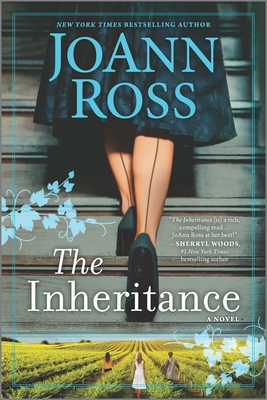 The Inheritance by JoAnn Ross
The Inheritance by JoAnn Ross Format: eARC
Source: supplied by publisher via NetGalley
Formats available: hardcover, large print, paperback, ebook, audiobook
Genres: Chick Lit, contemporary romance, historical fiction, relationship fiction, women's fiction, World War II
Pages: 384
Published by HQN Books on September 7, 2021
Purchasing Info: Author's Website, Publisher's Website, Amazon, Barnes & Noble, Kobo, Bookshop.org
Goodreads
With a dramatic WWII love story woven throughout, JoAnn Ross's women’s fiction debut is a generational saga full of sisterly affection and rivalry, perfect for fans of Susan Wiggs, Mary Alice Monroe and Lisa Wingate.
When conflict photographer Jackson Swann dies, he leaves behind a conflict of his own making when his three daughters, each born to a different mother, discover that they’re now responsible for the family’s Oregon vineyard—and for a family they didn’t ask for.
After a successful career as a child TV star, Tess is, for the first time in her life, suffering from a serious identity crisis, and renewed resentment around losing her father all over again.
Charlotte, brought up to be a proper Southern wife, gave up her own career to support her husband's political ambitions. On the worst day of her life, she discovers her beloved father has died, she has two sisters she never knew about, and her husband has fallen in love with another woman.
Natalie, daughter of Jack’s longtime mistress, has always known about her half sisters. And she can’t help feeling that when Tess and Charlotte find out, they’ll resent her for being the daughter their father kept.
As the sisters reluctantly gather at the Maison de Madeleine to deal with their father's final wishes, they become enchanted by the legacy they've inherited, and by their grandmother’s rich stories of life in WWII France and the wounded American soldier who would ultimately influence all their lives.
My Review:
When Pulitzer Prize winning conflict photographer Jackson Swann died, the most important thing that he left to his three daughters was not the award-winning Oregon winery that had been handed down in his family for generations, but each other.
The problem, the one that he left to his lawyer and his winery manager, was to get them to accept. Not just the winery – although certainly that, too – but mostly each other.
Tess Swann, Charlotte Aldredge and Natalie Seurat are all adults, all have – or have at least the shreds of – artistic careers of their own. But they’ve never met. They haven’t necessarily known that the others even existed.
These three women have been gathered together, not so much to celebrate the life of the man who links them, but rather to pick up the pieces of their own.
Tess, after a successful career as a child actress, a spectacular failure as a pop singer, and another successful career as a best-selling novelist, is looking for a third act in a life that has already seen plenty. She comes to the winery to recharge and search for a story idea that will get her past her writer’s block.
Her career sacrificed to her controlling husband’s political ambitions, her supposedly perfect marriage in tatters, Charlotte comes to the winery in search of respite and a place to call home – because her soon-to-be-ex-husband’s over-gilded and over-decorated faux antebellum McMansion certainly wasn’t it.
While Natalie returns to the winery to mourn the father that she knew best of all the sisters, and to make sure that her beloved, 96-year-old grandmother is doing as well as she can in the wake of her only son’s death.
Whether they will find what they are each looking for, or something more, or merely closure, they have one growing season at the winery to figure it all out together – or to tear themselves apart.
Escape Rating B: Like yesterday’s book (and a fair number of books in the chick lit/women’s fiction/relationship fiction genre), this is a story about three women, all of whom, coincidentally or otherwise, are at a crossroads in their lives or that face a crossroads because of the events of the story that bring them together.
In this case, the death of their larger-than-life father, no matter how much (Natalie) or how little (Tess) he participated in their lives. Jack Swann, who never seemed to quite know what to do with any of them when he could, manipulates them all after his death in a way that could have been horrible, but isn’t.
He provided an opportunity for all of them that he couldn’t have managed in life, for them to meet, be obligated to spend time together, get to know the grandmother that only Natalie was allowed to know about, and discover the legacy of the family they share.
The story of The Inheritance is, in a word, charming. Just as Jack Swann himself was, even if he couldn’t ever manage to stick around. The sisters are different enough from each other to stand as individuals, while at the same time sharing just enough characteristics to seem like they might make their initially tenuous connection work.
Their father turns out not to be the glue that ultimately binds them. That position is reserved for their grandmother Madeleine, who tells them the story of how she met and married their grandfather in France fighting for the Resistance in WW2. A story which inspires Tess’s writing, Charlotte’s realization that the life she has is not the one she wants or needs, and Natalie throwing caution to the winds in order to pursue the man she’s loved all her life.
I was charmed by this story, and thought that the way that the lives of the sisters finally mingled was lovely even if it was a bit contrived in the service of the story. There were a couple of bits that niggled at me.
Tess never met her father. That he didn’t raise her was one thing, but they never seem to have met at all in her conscious memory, and we never do find out why. As many family secrets as get revealed – and there are PLENTY – that omission felt like it just…dangled. Even after his marriage to Charlotte’s mother fell apart he was still a real if occasional presence in her life. But not Tess.
Second, there’s the show/tell repetition of Madeleine’s fascinating story about meeting, falling for and marrying her American pilot, Robert Swann. It’s a lovely and romantic story, and it serves as inspiration to all three sisters even though Tess is the one who plans to turn it into a novel. But we read Madeleine’s account as she remembers it and then it is repeated as she tells it to her granddaughters. While it’s normally better to show instead of tell, by the way the story works the telling feels like the better option. But one or the other would have been sufficient.
So I enjoyed reading The Inheritance, but it didn’t quite hit the spot as well as yesterday’s book. That’s possibly because this one reminded me a bit of Rhys Bowen’s World War II books, particularly In Farleigh Field, one of the subplots in Pardonable Lies, part of the Maisie Dobbs series and a third book I can’t put my finger on and it’s driving me bananas. It could be just because it’s a bit too similar to yesterday’s book and would have been a better read not quite so close.
But if you’re looking for a charming read that touches on a few dark places but doesn’t go too deeply, includes not one but four happy endings, and tells a lovely story of a surprising sisterhood, The Inheritance is a great way to while away some cozy reading hours.


 Write My Name Across the Sky by
Write My Name Across the Sky by  This is the story of two pairs of sisters all of whom were, in their own ways, trailblazers. Sam and Willow are in their late 30s when this story opens. Sam was one of the first women to head her own gaming company, and one of the first to design action/adventure games specifically intended to appeal to girls. While her company was an “overnight” success 20 years ago, in internet time, 20 years is a century, and her company is floundering.
This is the story of two pairs of sisters all of whom were, in their own ways, trailblazers. Sam and Willow are in their late 30s when this story opens. Sam was one of the first women to head her own gaming company, and one of the first to design action/adventure games specifically intended to appeal to girls. While her company was an “overnight” success 20 years ago, in internet time, 20 years is a century, and her company is floundering.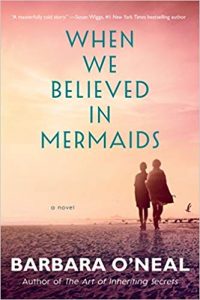 Like the two previous books by this author that I have read,
Like the two previous books by this author that I have read, 

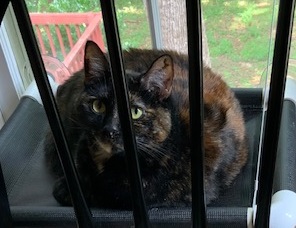
 Current Giveaways:
Current Giveaways: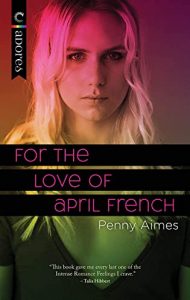 Blog Recap:
Blog Recap: Coming This Week:
Coming This Week:












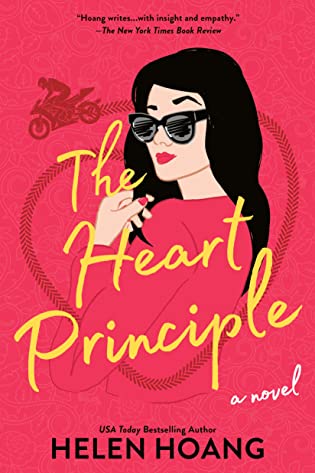 The Heart Principle (The Kiss Quotient, #3) by
The Heart Principle (The Kiss Quotient, #3) by 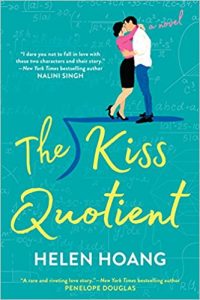
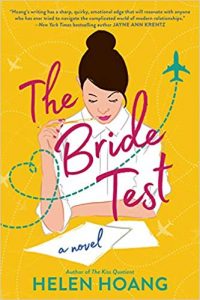
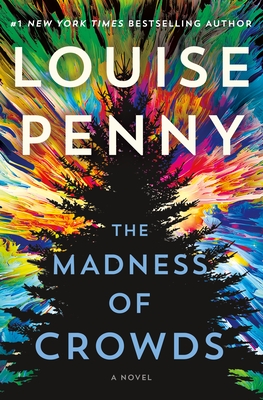 The Madness of Crowds (Chief Inspector Armand Gamache, #17) by
The Madness of Crowds (Chief Inspector Armand Gamache, #17) by 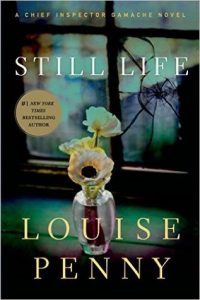
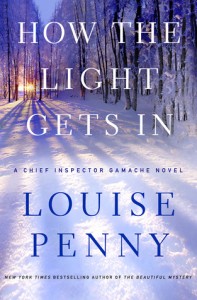
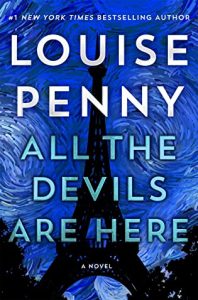
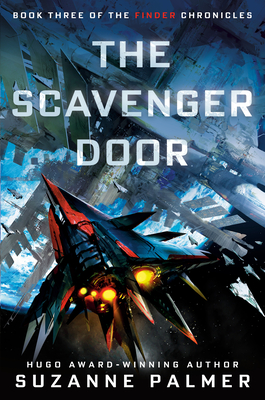 The Scavenger Door by
The Scavenger Door by 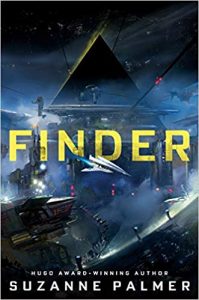 Surprisingly – honestly, extremely surprisingly – the basic premise of The Scavenger Door and the opening of last Friday’s book,
Surprisingly – honestly, extremely surprisingly – the basic premise of The Scavenger Door and the opening of last Friday’s book,  So don’t start here, because this book feels like the payoff for the whole thing. Start with Finder. Also, the audio for this entire series is wonderful. The narrator does a terrific job of conveying Fergus’ universe-weary voice, the entire story is told from Fergus’ first-person perspective. (That the narrator, when he is voicing Fergus’ internal dialog, sounds weirdly like Bill Kurtis from NPR’s
So don’t start here, because this book feels like the payoff for the whole thing. Start with Finder. Also, the audio for this entire series is wonderful. The narrator does a terrific job of conveying Fergus’ universe-weary voice, the entire story is told from Fergus’ first-person perspective. (That the narrator, when he is voicing Fergus’ internal dialog, sounds weirdly like Bill Kurtis from NPR’s 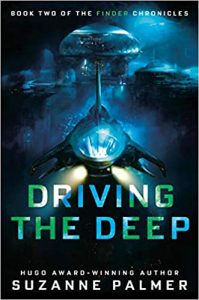 So this is an out-of-the-frying-pan into the lava-filled volcano story that rides on the semi-controlled insanity of its protagonist and the circle of amazing people that have been drawn into his chaotic orbit.
So this is an out-of-the-frying-pan into the lava-filled volcano story that rides on the semi-controlled insanity of its protagonist and the circle of amazing people that have been drawn into his chaotic orbit.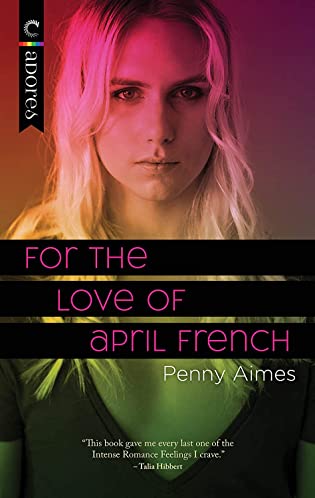 For the Love of April French by
For the Love of April French by 
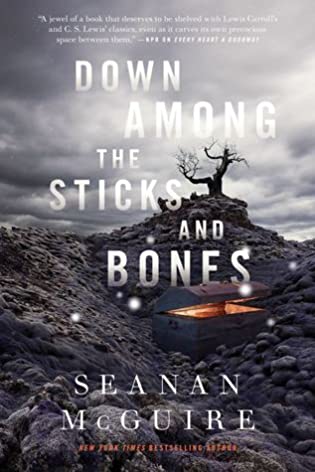 Down Among the Sticks and Bones (Wayward Children, #2) by
Down Among the Sticks and Bones (Wayward Children, #2) by 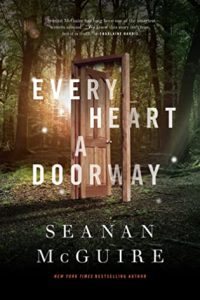 I’ve read this series completely out of order, at least once I read the first book,
I’ve read this series completely out of order, at least once I read the first book, 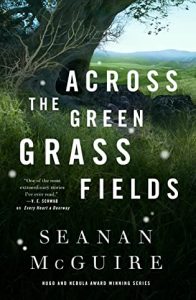 Escape Rating A-: Jack and Jill Wolcott are just two of the Wayward Children that we met in
Escape Rating A-: Jack and Jill Wolcott are just two of the Wayward Children that we met in 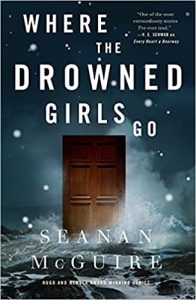 Down Among the Sticks and Bones could be read before Every Heart a Doorway, but they probably work better in the proper order. It feels deeper to learn about how Jack and Jill got to be who they are after seeing the place they end up. We’re also able to appreciate the tragedy of their story, not just because Jack loved and lost in the Moors, but because Jack really had found a home that was perfect for her, a home she was forced to give up to save her sister.
Down Among the Sticks and Bones could be read before Every Heart a Doorway, but they probably work better in the proper order. It feels deeper to learn about how Jack and Jill got to be who they are after seeing the place they end up. We’re also able to appreciate the tragedy of their story, not just because Jack loved and lost in the Moors, but because Jack really had found a home that was perfect for her, a home she was forced to give up to save her sister.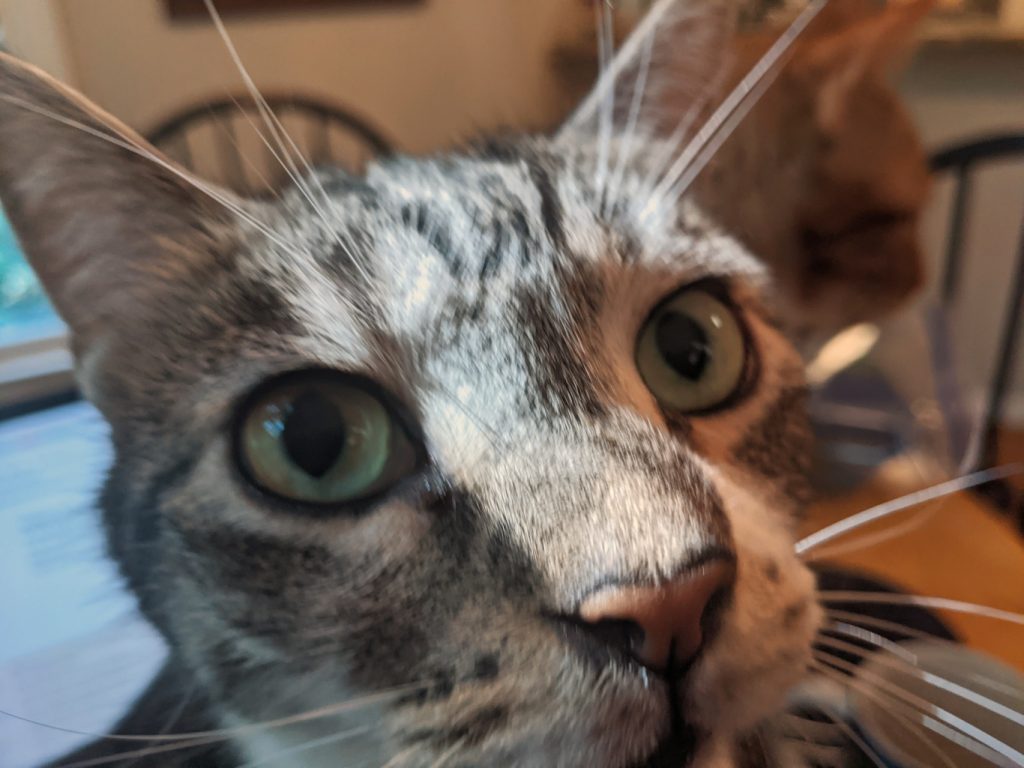
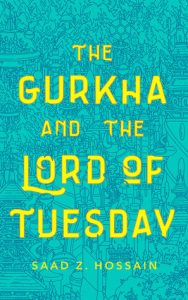 Blog Recap:
Blog Recap: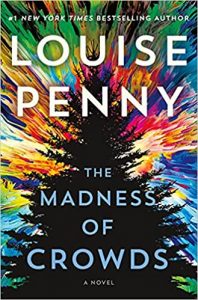 Coming This Week:
Coming This Week: